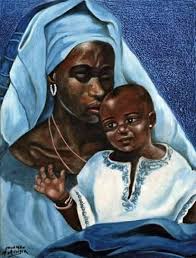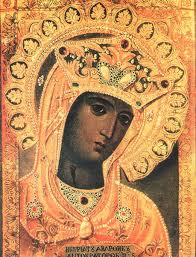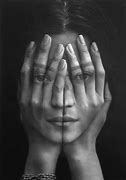'Heartbroken' Hindu and Muslim leaders call to end 'violence' in Leicester










'Heartbroken' Hindu and Muslim leaders call to end 'violence' in Leicester
Hindu and Muslim community leaders in Leicester have called for an immediate end to weeks of violent disturbances following a cricket match between India and Pakistan.
The widespread disorder - since an Asia Cup cricket match on 28 August - has led to one man being jailed and 47 arrests in total, with a faith leader saying it was sparked by a "country-based dispute" after the cricket.
On Tuesday, city leaders urged "the inciters of hatred" to stop the "provocation and violence - both in thought and behaviour", and urged troublemakers from outside the city to stay away.
"Leicester has no place for any foreign extremist ideology that causes division," they said in a joint statement.
"We, the family of Leicester, stand in front of you not only as Hindus and Muslims but as brothers and sisters.
"Our two faiths have lived harmoniously in this wonderful city for over half a century.
We arrived in this city together. We faced the same challenges together; we fought off racist haters together and collectively made this city a beacon of diversity and community cohesion."
'This is not upheld by our faiths'
"That is why we are saddened and heartbroken to see the eruption of tension and violence," they added.
"Physical attacks on innocent individuals and unwarranted damage to property are not part of a decent society and, indeed, not part of our faiths. What we have seen is not what we're about."
"We ask all to respect the sanctity of religious places, both mosques and mandirs alike - whether provocation with loud music, flag bearing, derogatory chants or physical attacks against the fabric of worship.
"This is not acceptable nor upheld by our faiths."
Warning that violence could spread beyond city
Suleman Nagdi, from the city's Federation of Muslim Organisations, said "loyalties kicked in" after the cricket match.
Tensions escalated over the weekend after unplanned protests on Saturday night and Sunday morning.
The trouble had been fuelled by some "very distorted social media stuff" as well as people coming from outside to "have a bit of a set-to", Leicester mayor Sir Peter Soulsby told BBC Radio 4's Today programme.
Police had previously warned people against posting "unhelpful speculation online".
However, Majid Freeman, a Muslim activist from Leicester, says the situation has been worsening since May when a young Muslim were attacked.
"They reported it to the police rather than taking things into their own hands," he said. "It's been over three months, three and a half months and police haven't charged anyone."
Since then, he says there have been further incidents, leading to frustration with the police. He says reports that the violence began with the cricket match are wrong.
Leicester East MP Claudia Webbe has warned that police and community leaders need to act urgently to put a stop to the violence.
"This has the potential to spread to other areas or spread to other areas of Leicester and has the potential to spread across the country," she said.
Investigation will run for months
Acting Leicestershire Police Chief Constable Rob Nixon said the investigation will run for "several months" until those responsible are identified and brought to justice.
He told Sky News: "I'm very encouraged by the level of support across the leadership in Leicester. The traditional community leaders, partners […] having a really detailed dialogue about some of these tensions, how we've got to where we are, and how we resolve them and take the issues forward."
Leicestershire Police said Amos Noronha, 20, was sentenced to 10 months in prison after pleading guilty to possession of an offensive weapon in connection with the violence.
He appeared at Leicester Magistrates' Court on Monday, the force said, adding several of those who had been detained were from outside the city, including some people from Birmingham.
Police officers were diverted from the Queen's funeral to deal with the disorder in the East Midlands city, including from the West Midlands, Derbyshire, and Nottinghamshire.
Horses from Thames Valley Police were also deployed.
Reference: Sky News:
Three killed in 'anti-hijab' protests in Iran after death of young woman after arrest










Three killed in 'anti-hijab' protests in Iran after death of young woman after arrest
hree people have been killed during violent protests in Iran over the death of a young woman after she was arrested for allegedly violating strict hijab rules.

Mahsa Amini, 22, fell into a coma and died after being arrested in the capital Tehran.
Police said the young woman had a heart attack and was taken to hospital while waiting with others held by the morality police - who make sure women in the Islamic republic cover their hair and wear loose fitting clothing in public.

According to her father, however, Ms Amini, who is said to have had no health problems, suffered bruising to her legs while in custody. He has said he holds the police responsible for her death.

Her death has ignited international anger, with the hashtag MahsaAmini trending on Twitter and reaching almost two million mentions.
During a third day of demonstrations on Monday, security forces opened fire on protesters in Ms Amini's home town, the city of Saqez in the Kurdish region of Iran, killing one.
Another person died and 15 were injured in the town of Divandarreh from "direct fire", according to the Hengaw Organisation for Human Rights. A third was killed in Dehgolan, also in the Kurdish region.
Iranian state television rejected the "claims of deaths on social media".
The claims have not been officially confirmed or independently verified.
France has joined the US in demanding accountability for Ms Amini.
The French foreign affairs ministry condemned the arrest and violence that led to Ms Amini's death, which it described as "profoundly shocking" and called for a transparent investigation to discover the cause behind of death.
The White House said: "Mahsa Amini's death after injuries sustained while in police custody for wearing an 'improper' hijab is an appalling and egregious front to human rights."
Amnesty Iran, which works on behalf of the human rights organisation Amnesty International, tweeted that the "circumstances leading to the suspicious death" of Ms Amini, including "allegations of torture and other ill-treatment", must be subject to a criminal investigation.

Tehran Police commander Hossein Rahimi insisted Ms Amini had suffered no physical harm and police had "done everything" to keep her alive, describing her death as an "unfortunate incident".
Reference: Sky News: Siba Jackson, news reporter -
Scots woman raped by priest in children's home begs for help from government compensation scheme
![]()
![]()
![]()
![]()
![]()
![]()
![]()
![]()
![]()
![]()
![]()
![]()
Scots woman raped by priest in children's home begs for help from government compensation scheme
woman raped by a priest in a children’s home when she was just eight years old has criticised the Scottish Government’s scheme to compensate victims of historic sexual abuse.
Joanne Peacher, 53, was sexually abused by a female member of staff at Nazareth House in Glasgow and just weeks later was raped by a priest.
Scotland’s Redress Scheme makes payments to people who were abused while in care as children before December 1 2004. It also provides help such as therapy, to those who need it.
But Joanne, who has learning difficulties and has battled mental ill health since she was abused, is still waiting to hear of her claim almost seven months after it was lodged.

She is desperate for her claim to be settled so she can begin the therapy she needs to help her come to terms with her horrific experiences.
oanne and her husband Andrew, 55, are begging the Scottish Government to tweak the scheme to allow victims to get the help they need immediately rather than waiting for the full financial package to be addressed.
Andrew, Joanne’s carer, said: “The money will allow her a few material things she has always wanted but the most important thing is the therapy.
“There aren’t the facilities in the NHS to cope with the amount of survivors and the complex treatment plans they need.”
Last night Labour’s Deputy Leader Jackie Baillie called on the government to take action.
She said: “It is very disappointing that there are delays with people having their claims dealt with by the Redress Scheme.
“People who have been abused in care have suffered so much already and these delays add insult to injury.
“The SNP Government must urgently ensure the resources are in place to deal with the backlog and to settle claims.”
Joanne’s mother had drug addiction issues and was unable to look after her in their Glasgow home.
She was in and out of care since she was a year old.
When she was eight Joanne, who has mild learning difficulties, said a female member of staff “whacked me with a stick three or four times on my ankle bone. She told me to say I’d fallen”.
However, her ankle was broken and after Joanne’s mum confronted the woman the little girl was targeted.
A few days later Joanne was in bed with German measles when her attacker brutally sexually assaulted her with a stick.
Just weeks later she was raped by a young priest as she lay in bed at night but she never reported it because she was too scared.”
For years, she told no-one about either incident: “I think I was too scared. I just wanted to forget about it. I wanted it to go away and not come back. Then I started getting flashbacks.”
She finally told her husband after 10 years of marriage and reported it to police who said they were unable to do anything because of a lack of evidence.
It was years before she finally got anything resembling juice.
After the Scottish Government created Redress Scotland she thought she would finally get some comfort.
Joanne added: “It is crazy we just have to wait and wait and wait. It is really affecting my mental health. I have struggled with my mental health since the abuse happened but this wait isn’t helping.”
Commenting, Joanna McCreadie, Chief Executive of Redress Scotland, said: “We welcome the strong response from survivors and their families to Scotland’s redress scheme.
“Since launching in December, the scheme has seen a high volume of enquiries and applications which has led to delays in how quickly completed applications can be passed on by Scottish Government caseworkers for consideration by the independent Redress Scotland panel.”
Once a completed application is received by Redress Scotland, the body says the average time for determination is 21 working days.
A Scottish Government spokesperson said in response to feedback they had received “the operating model for Scotland’s Redress Scheme has been improved to ensure that applications can be progressed prior to applicants having a case worker allocated and that the scheme remains robust, credible and operates efficiently, with survivors at the heart at all times”.
Reference: Daily Record: Vivienne Aitken
Iranian woman dies after beating by ‘morality police’ for not wearing headscarf











Iranian woman dies after beating by ‘morality police’ for not wearing headscarf
22-year-old Iranian woman has died after she was beaten by Iran’s “morality police” for not wearing a headscarf, according to eyewitnesses, in a case that has shocked the country.
Mahsa Amini was taken inside a police van and allegedly attacked by Iran’s Guardian Patrols, known also as morality police, and slipped into a coma shortly afterward. Iranian media reported on Friday evening that she had died of her injuries.
Wearing a headscarf is compulsory in the Islamic Republic, and those caught without one risk being imprisoned for up to two months and fined.
Iranian police deny beating the woman and have instead claimed that she fell ill from a “heart problem,” which the family denies, pointing out she had no pre-existing medical conditions.
Video footage has surfaced online which appears to show the morality police dragging the woman to the ground and taking her away.

In response to the attack, horrified Iranians have been tweeting with the hashtag “Murder Patrol.” Others angrily pointed out that Ali Khamenei, Iran’s Supreme Leader, once gave a speech, which has since resurfaced and gone viral, in which he defends the morality police and says women who dress immodestly should be punished.
Ms Amini’s brother, Kiaresh, told the Iran Wire news website that he went to collect her from the police station after learning of her arrest, but instead she was put into an ambulance.
“There were only two hours between her arrest and being taken to hospital,” he said.
A22-year-old Iranian woman has died after she was beaten by Iran’s “morality police” for not wearing a headscarf, according to eyewitnesses, in a case that has shocked the country.
Mahsa Amini was taken inside a police van and allegedly attacked by Iran’s Guardian Patrols, known also as morality police, and slipped into a coma shortly afterward. Iranian media reported on Friday evening that she had died of her injuries.
Wearing a headscarf is compulsory in the Islamic Republic, and those caught without one risk being imprisoned for up to two months and fined.
Iranian police deny beating the woman and have instead claimed that she fell ill from a “heart problem,” which the family denies, pointing out she had no pre-existing medical conditions.
Video footage has surfaced online which appears to show the morality police dragging the woman to the ground and taking her away.

In response to the attack, horrified Iranians have been tweeting with the hashtag “Murder Patrol.” Others angrily pointed out that Ali Khamenei, Iran’s Supreme Leader, once gave a speech, which has since resurfaced and gone viral, in which he defends the morality police and says women who dress immodestly should be punished.
Ms Amini’s brother, Kiaresh, told the Iran Wire news website that he went to collect her from the police station after learning of her arrest, but instead she was put into an ambulance.
“There were only two hours between her arrest and being taken to hospital,” he said.
Among those expressing their shock and disgust online was Nazanin Boniadi, a British-Iranian actress and activist. “How many innocent young lives must be brutally robbed before we all rise?” she wrote in a post on Twitter.
The hijab has been compulsory for women since the 1979 Islamic revolution and some have tried to protest against the rule by removing their veils in public places.
But such protests carry risks. Sepideh Rashno, a young Iranian woman, briefly vanished in July after she had a row with a woman on a bus who accused her of removing her headscarf.
She then resurfaced on state TV to issue what activists say was a forced confession, having been detained for more than a month by the Revolutionary Guards.
Activists in Iran say there has been an intensified crackdown on people not wearing the hijab in recent weeks as part of a wider assault on Iranian civil society. This includes mass arrests over the summer of members of the Baha’i faith, with Iranian forces bulldozing their homes and forcing some suspects to wear electronic bracelets.
Iran is trying to lift the sanctions in talks with Western leaders on reviving the Obama-era nuclear deal, in return for curbing their nuclear programme. But after more than 18 months of stalled talks, both sides seem pessimistic about the prospect of a deal.
Western leaders are also concerned that Iran has started supporting Vladimir Putin’s invasion of Ukraine by supplying drones, of which some have already been shot down by Iranian forces.
Reference: The Telegraph: James Rothwell -
Articles-Latest
- Koran burning conviction sparks fury as blasphemy law 'returns to UK'
- Robert Francis Prevost - Pope Leo XIV
- Pope Francis' death follows recent health challenges. Here's what we know about how he died.
- Easter April 2025 - international Celebrations
- The Rule of the twelve psalms -Worthy is the Lamb
- Religion in Africa Before Christianity and Islam
- 6 The Origin of Yahweh
- Dumo Di Milano
- What Did the Crow Tribe Believe In: Discover The Beliefs!
- 7 Reasons Historic Christianity Rejects the Book of Enoch
- 8 Breathtaking Mountain Monasteries Around the World
- Ethiopian Bible is oldest and most complete on earth
- Muhammad Muhammad was a prophet and founder of Islam.
- World Day of the Poor – SVP Christmas Campaign 2024
- Pope Francis to open 5 sacred portals on Christmas Eve — for a ritual that’s never been done before
- The 144,000 in Revelation
- Over 73 dead bodies 'used for meditation', 600 crocs in a pond, found in two Thai temples
- Occultism: Western Occult Tradition
- What is a Mudra
- Blood Sacrifices: Ancient Rituals of Life and Death
Articles-Most Read
- Home
- Let There Be Light
- Plants that feel and Speak
- The Singing Forest
- The Singing Forest-2
- Introduction
- Meditation
- Using Essential Oils for Spiritual Connection
- Heaven Scent
- Plants that Feel and Speak-2
- Purification
- Making the Spiritual Connection
- Anointing
- Essential Oils: The unseen Energies
- The Sanctity of Plants
- The Aroma Of Worship-Foreward
- The Aroma Of Worship - Introduction
- Methods Of Use
- Spiritual Blending
- Handling and Storage








